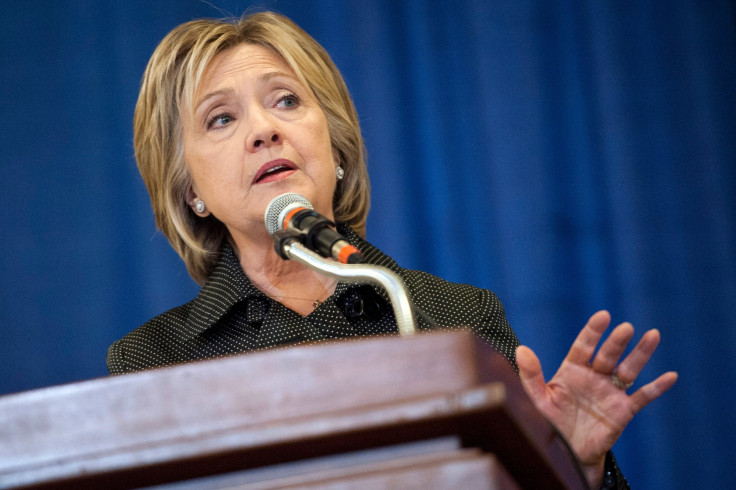Election 2016: Key Labor Union Endorses Hillary Clinton, Defying Rank-And-File Critics

Hillary Clinton picked up an endorsement from one of the nation’s most powerful labor unions Tuesday. The executive board of the 1.9 million-member Service Employees International Union (SEIU) voted to endorse the former secretary of state for president at a meeting in Washington.
The union's backing marks a major victory for Clinton, who now boasts support from the country’s largest, most politically connected and heaviest-spending labor unions, a group that also includes the predominant public-sector union and two of the largest teachers’ unions. The nod from the service workers gives the former first lady a boost as she aims to stave off her chief Democratic primary opponent, Bernie Sanders. The Vermont senator is popular among rank-and-file labor activists but trails Clinton in national polls.
“Hillary Clinton has proven she will fight, deliver and win for working families,” the union's president, Mary Kay Henry, said in a statement. “SEIU members and working families across America are part of a growing movement to build a better future for their families, and Hillary Clinton will support and stand with them."
The move is not without controversy within the union’s ranks -- and the labor movement at large. The service workers’ union has poured millions into the so-called Fight for 15, a protest-driven campaign that has helped pass $15 hourly minimum wages in Seattle, San Francisco and Los Angeles and shifted the national debate over what constitutes an adequate federal pay floor, currently $7.25 an hour. But during the most recent Democratic debate, Clinton criticized a proposed $15 nationwide minimum, calling instead for $12. Both her opponents, Martin O’Malley and Bernie Sanders, support $15 an hour.
Many SEIU members prefer Sanders, including Rand Wilson, a staffer for the union's Massachusetts-based Local 888 and founding member of the grassroots network Labor for Bernie. Wilson jokes the union should rename the campaign the “Fight for 12.”
“It’s important to support the candidate who’s supportive of our objectives,” he says. “It’ll be hard to continue to support a candidate who supports $12 an hour when there’s a viable one who supports $15. It’s awkward for leaders and organizers to explain that to people they’re working with, to low-wage workers, it’s awkward.”
Wilson predicts the move will generate backlash against the leadership. Sanders is seen as a more passionate defender of the union’s broader agenda.
“It’s going to divide the membership in the face of important campaigns -- the fight to raise minimum wages, immigration reform, breaking up the banks, the need to overturn Citizens United,” Wilson says. “This is the time we need to unite.”
SEIU insists it has a democratic mandate to back Clinton. The union says it conducted internal polling that shows broad support for the former secretary of state. However, it did not immediately release any data. Pro-Clinton voices in the labor movement say that Labor for Bernie, despite its sizable Web presence, is unrepresentative of the membership as a whole. The latter insist they represent a large chunk of politically involved union members.
David Rolf, president of Seattle-based Local 775, says he supports the union’s call. The biggest political threat to workers, he says, is neither Clinton nor Sanders. It’s whoever wins the Republican nomination.
“I have an interest in not having a president that freezes the national minimum wage, establishes national right to work for home care workers, child care workers, and keeps low-wage workers of all sorts held down,” Rolf says. “In a different world, different era, maybe both parties would have agreed on this.”
© Copyright IBTimes 2024. All rights reserved.






















